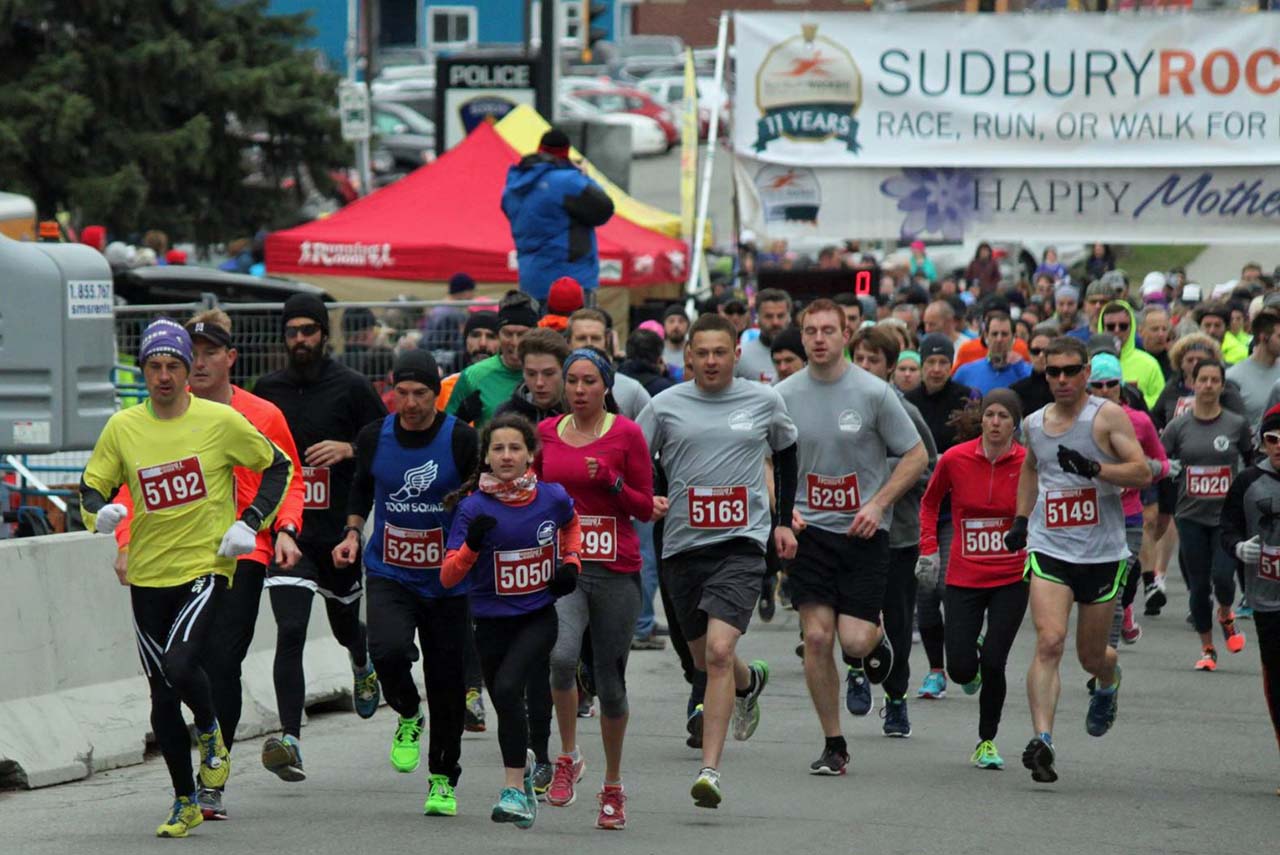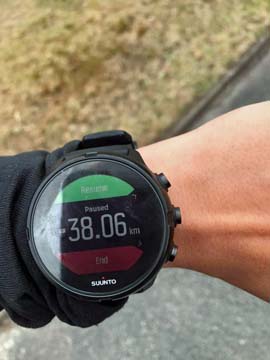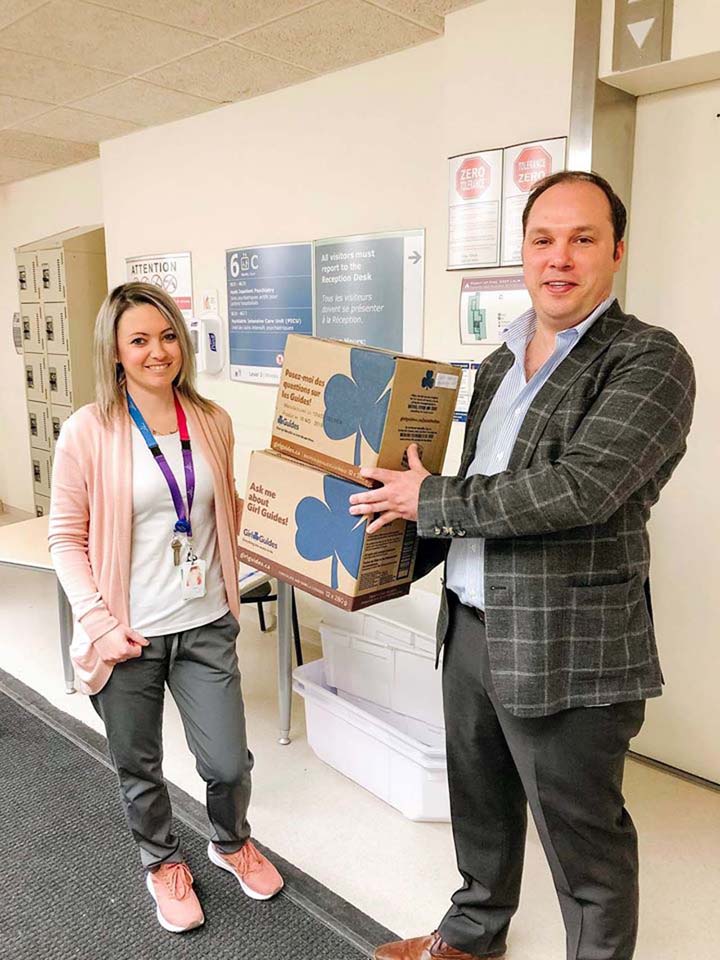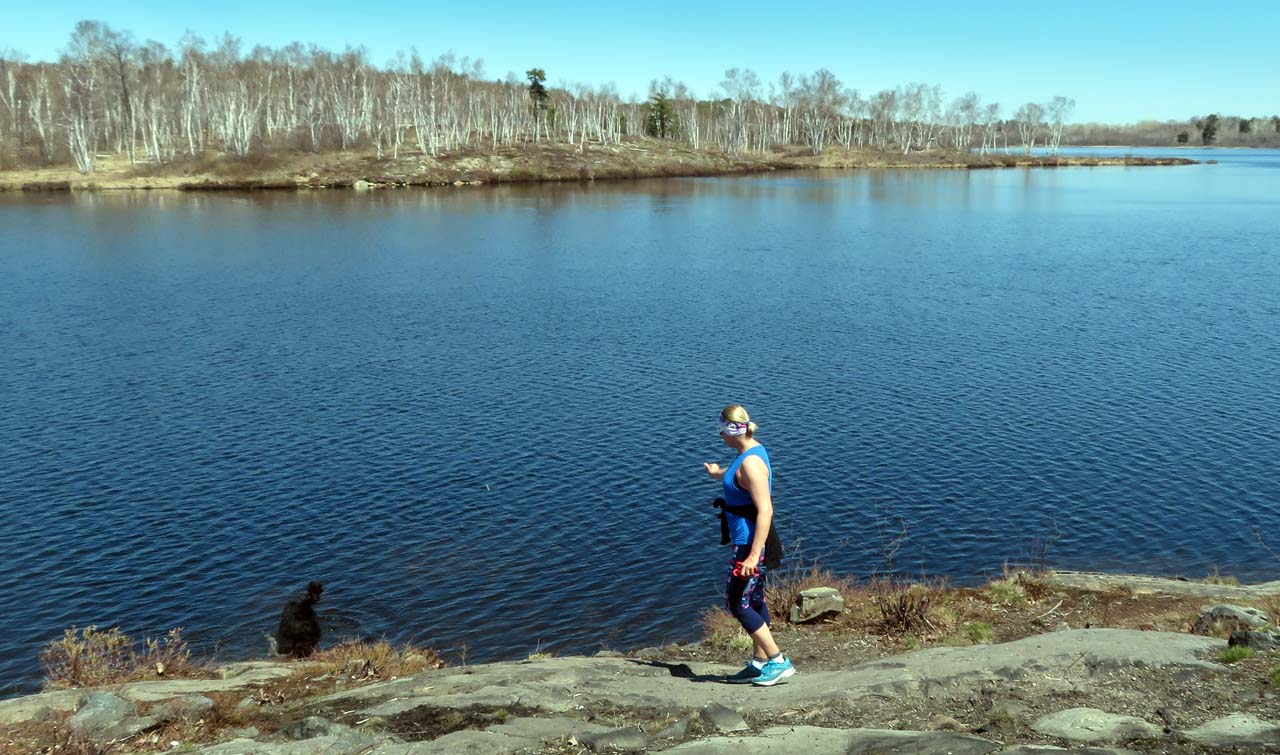There’s undoubtedly
a shadow cast over everything we do (and can’t
do) right now, amid the global coronavirus pandemic.
Running is supposed to be a cure-all, but these unprecedented,
trying times are making it hard for many to muster
the strength to lace up and head out the door. That
lack of motivation, mental health experts say, is
understandable and completely normal in the short
term. “Life in general has slowed down a lot
right now,” Gregory Scott Brown, M.D., director
for the Center for Green Psychiatry in West Lake Hills,
Texas, tells Runner’s World. “That kinetic
energy we have from waking up in the morning, darting
out of the house, and going to work motivates and
inspires us, but now that routine is broken up, making
it more difficult for people to find motivation.”
So how do we will ourselves
to log miles? Or do we at all? Like under normal circumstances,
it’s all about balance, Brown says.
Why
Don’t I Feel Motivated Anymore?
We don’t have
to tell you that runners are creatures of habit. And
when those habits are broken, it can be a shock to
the system.
“As with everything,
there isn’t a one-size-fits all answer [to not
feeling motivated],” sports psychologist Sam
Maniar, Ph.D., founder of the Center for Peak Performance,
tells Runner’s World. “Maybe you don’t
have a goal to strive for—a lot of races are
postponed—or you feel like you’re not
getting much done, or your sleep cycle is off.”
Any of those things on
their own can cause people to ditch their routine.
Add an immense time of uncertainty, stress, and isolation,
and the whole situation provokes anxiety, Maniar says.
“The anxiety, loss
of purpose, and complete disruption of order has killed
my running since March,” Krista Ruehmer, a Milwaukee-based
runner, tells Runner’s World. “I was on
such a roll and hoping for a half marathon PR this
year. Now I’m struggling to run 15 miles a week,
[let alone] the 35 I had been running.”
For Ruehmer, it’s
not just the disruption of her routine that’s
making it nearly impossible to log miles—it’s
also the stress of seeing other people on her route
and possibly getting sick.
“I miss running
freely without being paralyzed by panic when I come
upon another person,” she says. “I’ve
avoided all my usual running spots because I get too
anxious at the thought of other people.”
Maniar emphasizes the
importance of identifying the barriers for not getting
out the door. Maybe you’re used to running with
people. To work around that obstacle, Maniar suggests
texting your group before you run to hold you accountable
or for a sense of camaraderie.
For Adam Rosenfeld, a
runner in Austin, not having a group to run with has
been a huge obstacle in getting out the door.
“Without that structure
and motivation and push at the start of my day, I
just slipped,” Rosenfeld, who went from logging
45 miles a week to roughly 10, tells Runner’s
World. “Group runs are key to my happiness,
even if no one talks to me on the run.”
Ruehmer also says she
misses her friends, with whom she’d run with
every weekend, followed by coffee.
“It was a constant
and a motivator,” she says. “I never realized
how much I depended on it until social distancing
deemed it impossible. It will be amazing to finally
have that small piece of life back.”
If you’ve tried
solving for these barriers and still don’t feel
like running, that’s not a huge surprise right
now, says Maniar, who works with collegiate and professional
athletes.
“The pandemic has
taken away their structure, their competition. It’s
taken away life as they know it,” he says. “When
you think about it that way, it’s not surprising
that they don’t feel motivated.”
I Just Don’t
Want to Run Right Now. Is that Okay?
For runners who have
always braved the elements and quieted the voice in
their heads that said, “Just sleep in today,”
skipping a workout can feel foreign and may even provoke
a sense of guilt.
But if you just don’t
want to run, “That’s absolutely okay,”
Brown says. “It’s all about balance. Sometimes
there’s so much pressure to go, go, go, and
now that life has slowed down, you’re not feeling
that same pull, and the guilt can kick in.”
The guilt cycle is a
vicious one: Feel guilty about not being motivated,
skip a run, feel guilty about skipping a run.
“In the short term,
take some time to relax or try something new,”
Brown, a runner and yogi, says. “That’s
completely fine and okay and beneficial.”
The key point, however,
is over the short term. While there isn’t a
definitive time frame of short term right now, feeling
a lack of motivation for weeks or months might be
indicative of a larger issue, including anxiety and
depression, Maniar says.
“It’s a scary
time right now, and there is a loss of motivation,”
he says. “I don’t want everyone to think
if I stopped running, I’m depressed, but if
you’re not motivated to get out of bed or exercise
when typically you would be, that’s a warning
sign that something is off.”
Other red flags that
might be indicative of anxiety or depression include
behavior change, sleep changes—not sleeping
enough, sleeping too much, or trouble falling or staying
asleep—feeling tired upon waking, appetite changes—eating
more or less than usual—and isolating yourself
further from those around you, including virtual hangouts.
More obvious symptoms
include crying, increased heart rate, headaches, and
muscle tension. If you’re experiencing these
symptoms, it might be time to seek professional help,
Maniar says.
And you’re not
alone: Brown says prescriptions for anti-anxiety medications
and anti-depressants have increased as a result of
the pandemic.
How Can I Break
Out of This Rut?
At the end of the day, there’s nothing wrong
with skipping a handful of workouts, and doing so
might actually provide a needed break. But there’s
no question that regular physical exercise can significantly
improve mental health.
A 2017 study published
in the Journal of Affective Disorders, for example,
found that people ages 20 and older who engaged in
light physical activity were more likely to experience
depression and metabolic conditions—such as
high blood pressure, blood sugar, or cholesterol—compared
with those who engaged in vigorous activity.
And a 2017 meta-analysis
published in the same journal found that people with
major depressive disorder had a roughly 50 percent
higher chance of not meeting the guidelines of 150
minutes of moderate to vigorous exercise every week.
In other words, regular
exercise, like running, can help prevent and treat
depression.
“Exercise has been
shown to be as effective, if not more so, at combatting
things like depression and anxiety than any medication
out there,” Maniar says. “And exercise
is a great way to manage stress, which can put you
at risk for getting sick.”
The best way to get back
into an exercise routine is slowly, Brown and Maniar
say.
“It’s all
about eating the elephant one bite at a time,”
Maniar says. “Break it down into manageable
chunks.”
You don’t have
to get out every day or match your pre-coronavirus
mileage, Brown says. Instead, commit to one or two
runs per week at whatever mileage you feel like in
the moment. Or don’t run, and instead try at-home
yoga or a living room strength workout.
Brown recommends putting
together a daily schedule to help bring structure
back into the picture.
“Even if you’re
not going to work, set an alarm to wake up at a certain
time. Schedule a lunch break. Schedule a run,”
he says. “Creating time and space for a run
is important because it lets us know it’s something
we need like food, water, and air.”
While not everyone is
motivated by having a race on the calendar, many runners
need to work toward something to keep up with their
routine.
“It’s hard
to do the training unless you have that carrot out
in front of you,” Nick Willis, a 1500-meter
runner who runs for Tracksmith and is training for
the 2020 Olympics, tells Runner’s World. “Getting
out the door is the hardest part. But once you get
going, the run takes care of itself.”
Ruehmer can relate. In
an effort to ease the anxiety of bumping into other
people, she has relegated herself to a two-mile loop
in her neighborhood. With her coach, she’s focusing
on speed and working on improving her loop time, something
she hasn’t done before.
“I’m excited
to see how much I improve,” she says. “I
feel like turning the boring two-mile loop into a
game is the right amount of turning lemons into lemonade.”










219.jpg)



































